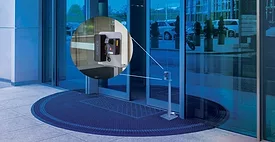Home » COVID-19
Articles Tagged with ''COVID-19''
Remote work lingers: Top 3 ways to keep employee devices secure
National Cybersecurity Awareness Month: Securing Devices at Home and Work
October 14, 2020
Sign-up to receive top management & result-driven techniques in the industry.
Join over 20,000+ industry leaders who receive our premium content.
SIGN UP TODAY!Copyright ©2026. All Rights Reserved BNP Media.
Design, CMS, Hosting & Web Development :: ePublishing











